Canadians’ Trust in Public Health Advice Vulnerable to Confusion Over Divergent Recommendations: Abacus Data Poll
In a study commissioned by Spirits Canada, Abacus dove into how Canadians view alcohol, whether they trust Health Canada’s official guidelines for low-risk drinking, and what impact discrepancies in alcohol advice have on Canadians’ trust in health guidelines. 2,000 Canadians were interviewed between May 17th and 21st, 2023.
Most Canadians Are Moderate Drinkers; Understand Drinking Should Be Enjoy Sparingly
When asked what they think about beverage alcohol, most Canadian adults believe it is something to be enjoyed sparingly (35%), or in moderation (53%). Very few are teetotalers (8%) or believe alcohol is something to be enjoyed in excess (4%). With regard to health, Canadians take a more conservative view than Health Canada’s official low-risk alcohol drinking guidelines, with 72% assuming between 0-6 standard drinks a week is what healthy adults can consume safely.
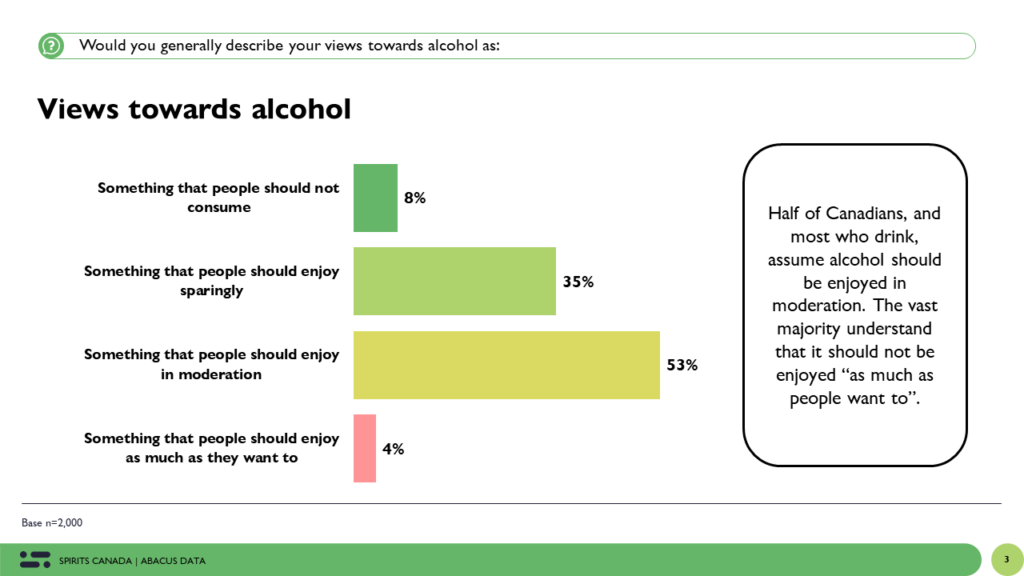
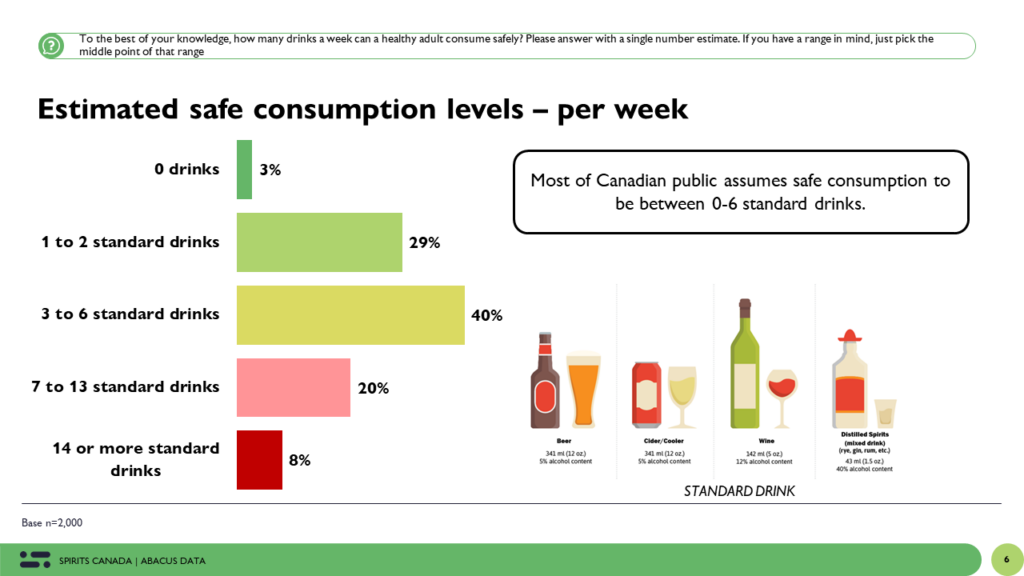
How well do these attitudes and assumptions align with their reported lived experiences? Even accounting for possible under-reporting, the vast majority of the 2 in 3 Canadians who drink alcohol at least once per month say they drink within Canada’s official guideline of 10-15 drinks per week (78% consume 1-6 drinks per week), with only a minority drinking at the upper range of the Health Canada recommendations of 10-15 drinks a week.
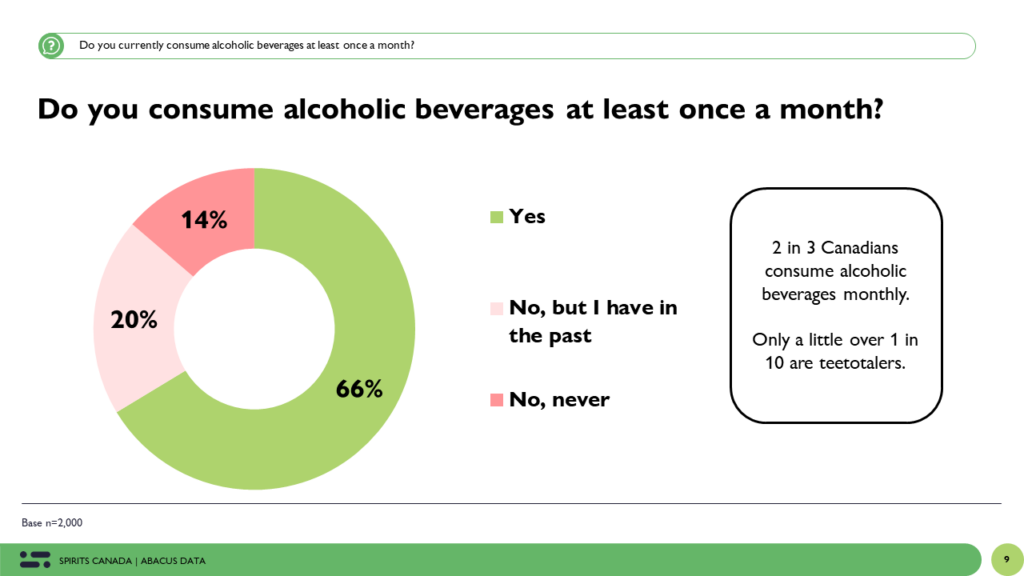
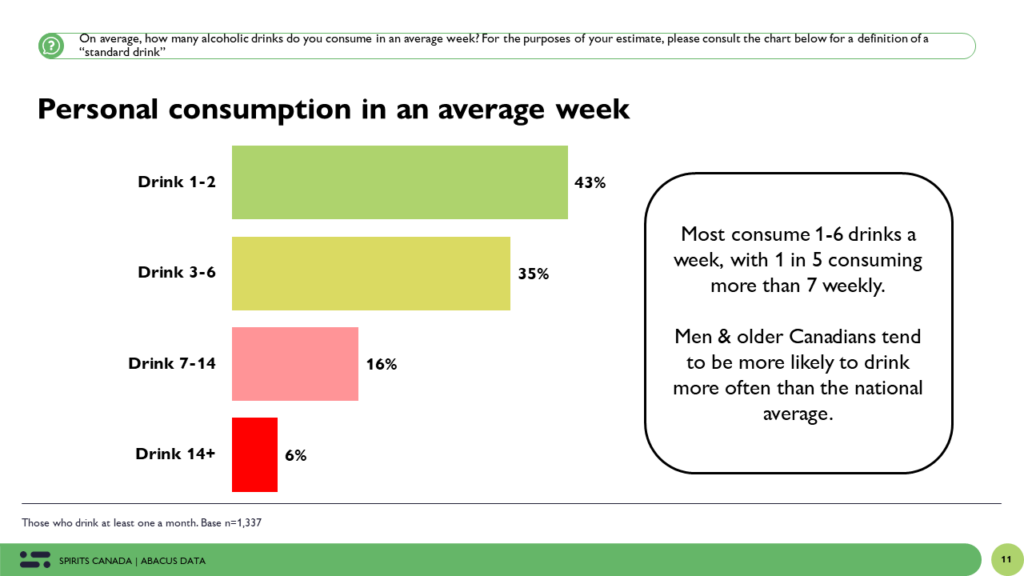
Trust in Government, Institutions is High on Health-Related Matters
Trust in knowledge generating institutions, experts, and even government is quite high among the public when it comes to health. Most Canadians at least somewhat trust in Health Canada, NGOs, academics, and medical professionals when it comes to advising them on health-related matters.
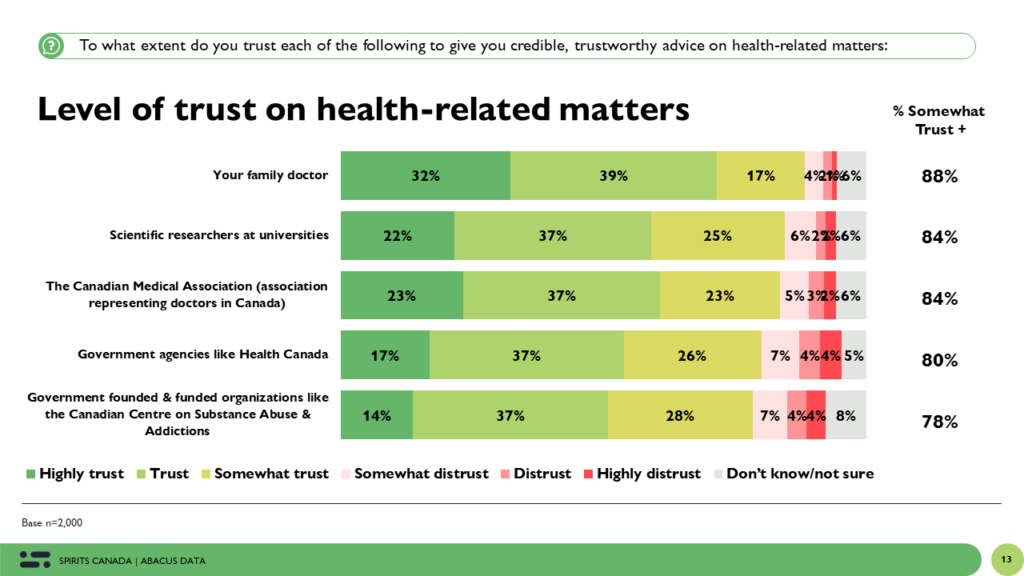
When presented with Canada’s official low-risk alcohol drinking guidelines, which suggest maxing consumption at 2 (female) or 3 (male) standard drinks per day, 10 or 15 standard drinks per week, and 3 or 4 standard drinks on special occasions, most find what the government recommends credible (68%).
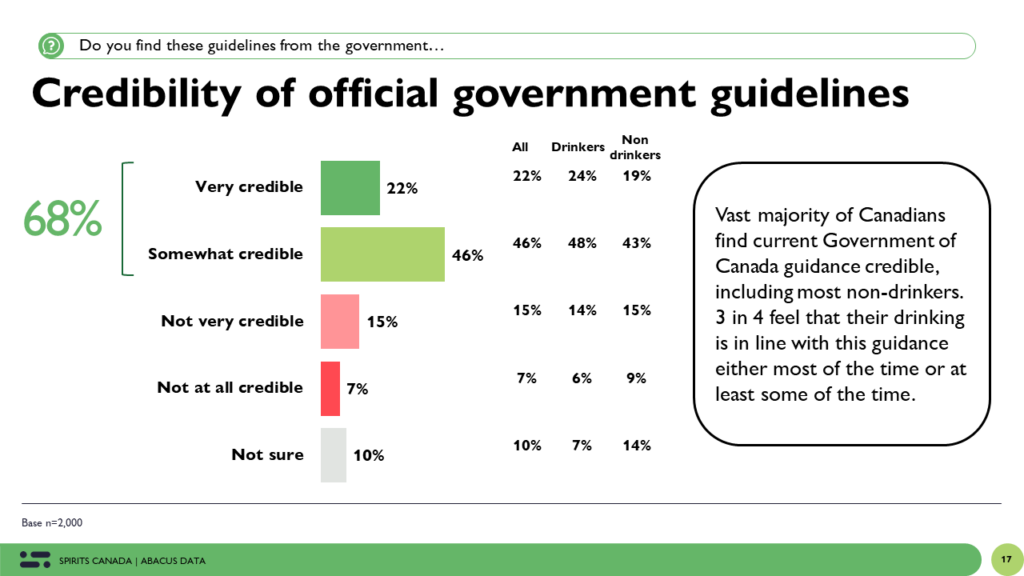
Advice Discrepancies Cause Confusion, Mistrust, Loss of Trust
However, when asked to compare Canada’s official low-risk drinking guidelines with recommendations that reach very different conclusions, Canadians’ trust devolves.
After reviewing recommendations that advise against consuming more than two drinks per week (issued in August 2022 by the Canadian Centre for Substance Abuse and Addiction), as well as a University of Victoria study (published April 2023 in JAMA Open) that concluded increased risk only above two drinks per day, 6 in 10 Canadians become some or some combination of:
- Unsure about the quality of scientific evidence on alcohol & health;
- Mistrustful of government, the CCSA, or public health guidelines generally; or,
- Confused on what to do going forward.
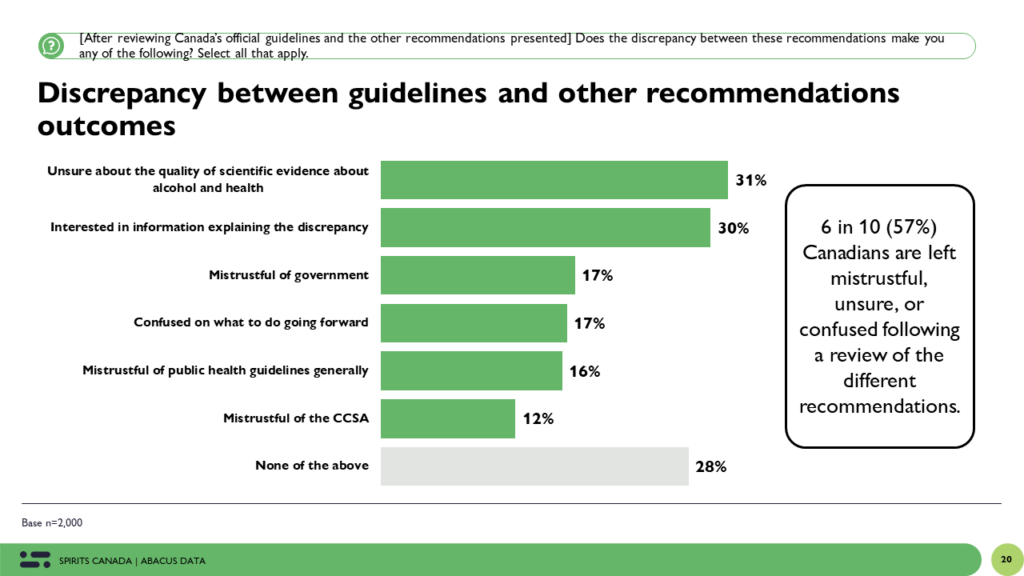
Having read through all three recommendations, 6 in 10 Canadians explicitly agree that this contradictory information makes them less trustful of government and the scientific process.
The majority of the Canadian public believes that government’s focus should be on reducing the harm of excess alcohol consumption. Most think that trying to limit the amount of alcohol consumed by light to moderate drinkers will do nothing to convince heavy drinkers or reduce the harms of excess alcohol consumption.
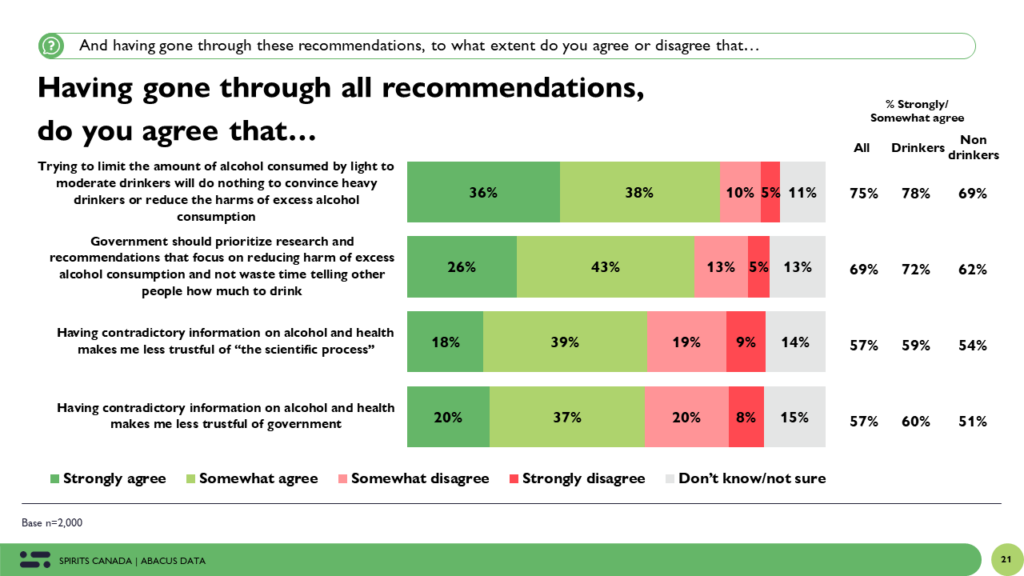
The Upshot
Canadians are responsible drinkers. The 2 in 3 Canadians who do drink alcohol take a moderate approach. Very few have extreme views like believing alcohol should be cut out completely or enjoyed in excess. Their assumptions about what is healthy are well below what even Health Canada recommends in its low-risk guidance. In an era of declining trust in experts and institutions, having competing information in the marketplace of ideas can have negative consequences for regulators trying to put out the best advice possible.
Canadians get the risks of consuming alcohol above official guidelines, understand and perhaps even overestimate thresholds for what is unsafe, and their behaviors are in line with their assumptions, even if their personal consumption estimates were inflated by 2x. Most want governments to work on preventing cases of extreme abuse, rather than trying to get moderate or occasional drinkers to consume less beverage alcohol.
Methodology
The survey, commissioned by Spirits Canada, was conducted online with 2,000 Canadians aged 18 and over from April 24 to 28, 2023.
A random sample of panelists were invited to complete the survey from a set of partner panels based on the Lucid exchange platform. These partners are typically double opt-in survey panels, blended to manage out potential skews in the data from a single source.
The margin of error for a comparable probability-based random sample of the same size is +/- 1.8%, 19 times out of 20.
The data were weighted according to census data to ensure that the sample matched Alberta’s population according to age, gender, educational attainment, and region. Totals may not add up to 100 due to rounding.
ABOUT ABACUS DATA
We are the only research and strategy firm that helps organizations respond to the disruptive risks and opportunities in a world where demographics and technology are changing more quickly than ever.
We are an innovative, fast-growing public opinion and marketing research consultancy. We use the latest technology, sound science, and deep experience to generate top-flight research-based advice to our clients. We offer global research capacity with a strong focus on customer service, attention to detail, and exceptional value.
We were one of the most accurate pollsters conducting research during the 2021 Canadian election following up on our outstanding record in 2019.
Contact us with any questions.
Find out more about how we can help your organization by downloading our corporate profile and service offering.